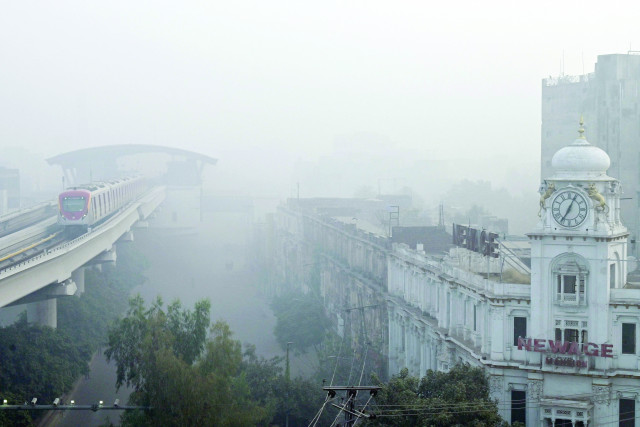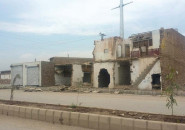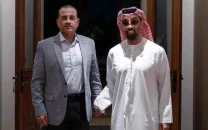Air pollution in spotlight at Lahore conference
.

Pakistan's worsening air pollution crisis took centre stage at The Air We Breathe, a high-level conference hosted by DawnMedia under its Breathe Pakistan initiative at Expo Centre Lahore on Saturday.
The day-long event brought together ministers, superior court judges, and international experts to discuss solutions for cleaner air. Punjab, the province hardest hit by smog, remained central to the conversation, even in the chief minister's absence.
Opening the conference, Dawn CEO Nazafreen Saigol-Lakhani said Breathe Pakistan was launched to promote a sustained, evidence-based conversation on climate change. She emphasised that the "health of our people and the future of our children are not policy points, they are our priorities".
Senior Punjab Minister Marriyum Aurangzeb said Chief Minister Maryam Nawaz's smog-mitigation plan was already deploying AI-based forecasting, drone-based industrial monitoring, anti-smog guns, and electric buses across major routes.
Punjab's Environment Secretary Silwat Saeed noted that the province's development programme had been "climate-tagged" for the first time.
In a video address, Climate Minister Musadik Malik called air pollution a "man-made problem that must be fixed by human hands".
Planning Minister Ahsan Iqbal described the air crisis as "a battle for survival," warning that Lahore's air quality index touching 400 was "a red alert for the nation".
From the health sector, Dr Dapeng Luo, WHO Representative in Pakistan, called clean air "a basic human right," noting that 256,000 Pakistanis die each year due to air pollution.
UNICEF's Pernille Ironside termed it "a direct, preventable killer," while Dr Saima Saeed of the Indus Hospital said 60 per cent of patients reporting respiratory symptoms suffered from asthma linked to poor air quality.
The judiciary's presence reinforced that clean air is a constitutional right. Supreme Court Justice Syed Mansoor Ali Shah said there was a "huge gap between jurisprudence and reality," calling for cooperative federalism to bridge policy and execution. "The government seems uninterested in changing the life of the ordinary person," he said, urging civil society to "fight for its right to breathe".
Justice Ayesha Malik termed air pollution "a public-health emergency," warning that "without science, you cannot solve this issue," while Justice Jawad Hassan of the Lahore High Court reiterated that every citizen has the constitutional right to a clean environment under Article 9A.
From the private sector, Zafar Masud, Chairman of the Bank of Punjab, said dirty air costs Pakistan nearly six per cent of its GDP, urging stronger coordination to unlock climate finance.




















COMMENTS
Comments are moderated and generally will be posted if they are on-topic and not abusive.
For more information, please see our Comments FAQ